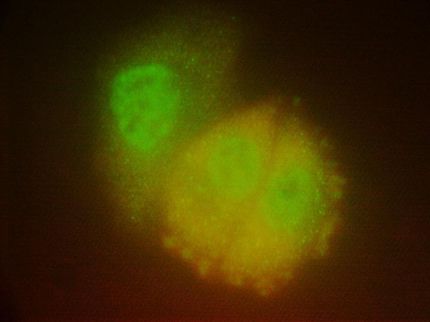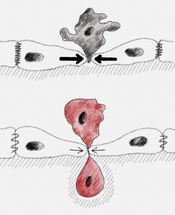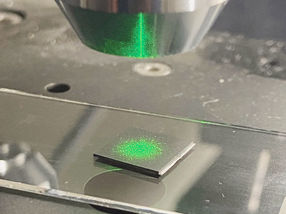SLU researcher finds an off switch for pain
Activating the adenosine A3 receptor subtype is key to powerful pain relief
In research published in the medical journal Brain, Saint Louis University researcher Daniela Salvemini, Ph.D. and colleagues within SLU, the National Institutes of Health (NIH) and other academic institutions have discovered a way to block a pain pathway in animal models of chronic neuropathic pain including pain caused by chemotherapeutic agents and bone cancer pain suggesting a promising new approach to pain relief.
The scientific efforts led by Salvemini, who is professor of pharmacological and physiological sciences at SLU, demonstrated that turning on a receptor in the brain and spinal cord counteracts chronic nerve pain in male and female rodents.
Activating the A3 receptor - either by its native chemical stimulator, the small molecule adenosine, or by powerful synthetic small molecule drugs invented at the NIH - prevents or reverses pain that develops slowly from nerve damage without causing analgesic tolerance or intrinsic reward (unlike opioids).
An Unmet Medical Need
Pain is an enormous problem. As an unmet medical need, pain causes suffering and comes with a multi-billion dollar societal cost. Current treatments are problematic because they cause intolerable side effects, diminish quality of life and do not sufficiently quell pain.
The most successful pharmacological approaches for the treatment of chronic pain rely on certain "pathways": circuits involving opioid, adrenergic, and calcium channels.
For the past decade, scientists have tried to take advantage of these known pathways - the series of interactions between molecular-level components that lead to pain. While adenosine had shown potential for pain-killing in humans, researchers had not yet successfully leveraged this particular pain pathway because the targeted receptors engaged many side effects.
A Key to Pain Relief
In this research, Salvemini and colleagues have demonstrated that activation of the A3 adenosine receptor subtype is key in mediating the pain relieving effects of adenosine.
"It has long been appreciated that harnessing the potent pain-killing effects of adenosine could provide a breakthrough step towards an effective treatment for chronic pain," Salvemini said. "Our findings suggest that this goal may be achieved by focusing future work on the A3AR pathway, in particular, as its activation provides robust pain reduction across several types of pain."
Researchers are excited to note that A3AR agonists are already in advanced clinical trials as anti-inflammatory and anticancer agents and show good safety profiles.
"These studies suggest that A3AR activation by highly selective small molecular weight A3AR agonists such as MRS5698 activates a pain-reducing pathway supporting the idea that we could develop A3AR agonists as possible new therapeutics to treat chronic pain," Salvemini said.
Other news from the department science

Get the life science industry in your inbox
By submitting this form you agree that LUMITOS AG will send you the newsletter(s) selected above by email. Your data will not be passed on to third parties. Your data will be stored and processed in accordance with our data protection regulations. LUMITOS may contact you by email for the purpose of advertising or market and opinion surveys. You can revoke your consent at any time without giving reasons to LUMITOS AG, Ernst-Augustin-Str. 2, 12489 Berlin, Germany or by e-mail at revoke@lumitos.com with effect for the future. In addition, each email contains a link to unsubscribe from the corresponding newsletter.






















































